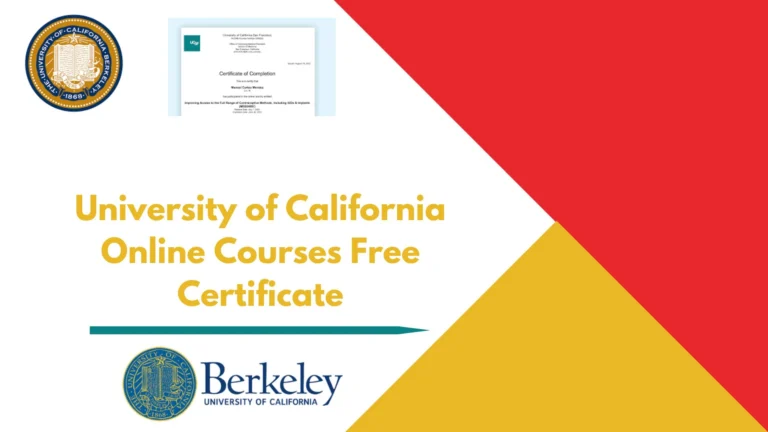Top 10 Health & Safety Courses in Pakistan
Every organization understands how important it is to keep workers safe. That is why they are starting safety training programs to promote workplace safety. These occupational health and safety courses cover everything from basic to advanced techniques and are helpful for people working in every industry, such as healthcare, construction, and manufacturing. These safety courses help reduce the number of workplace accidents and injuries and increase productivity.
In Pakistan, many organizations deal with hazards that can lead to accidents or even death. That is why safety courses are essential there. These Safety Courses in Pakistan teach employers and workers what to do to keep everyone safe. Also, taking a safety course from an approved institute shows that the company is serious about safety.
This article will help you find the best Top 10 Health & Safety Courses in Pakistan, whether you want to start your career in health and safety or improve your company’s safety standards.
Here is the list of the Top 10 Health & Safety Courses in Pakistan:
1. NEBOSH IGC (International General Certificate)
The NEBOSH International General Certificate (IGC) is one of the most sought-after globally recognized Level 3 international certifications. The IGC is an advanced comprehensive health and safety course covering hazard identification, risk assessment, safety management systems, incident investigation, and control measures. The course is well structured to meet the needs of people working in health and safety managers, supervisors, and employee roles. The NEBOSH IGC, also known as the Safety Officer Course, primarily focuses on developing the skills and knowledge required to promote a safe and healthy work environment.
One of the best Safety Courses in Pakistan and widely acclaimed, NEBOSH IGC consists of two units, IG1 and IG2. A separate exam reviews each unit.
Unit IG1 is an open-book examination taken online through NEBOSH’S portal. The student is given a 24-hour window to access, complete, and submit the online exam.
On the other hand, IG2 requires candidates to engage in a practical assessment of health and safety embedded in a workplace scenario. Participants should conduct a risk assessment and create an action plan.
Like any other international health and safety course or certification, the NEBOSH IGC has certain requirements. As the course is designed in English, candidates applying for the course must have a reasonable understanding of English.
2. OTHM Level 6 Diploma in OHS
You can gain an in-depth understanding of occupational health and safety by enrolling in the OTHM Level 6 Diploma in OHS. It is specifically designed for those individuals who want to pursue higher positions in the OHS field. This comprehensive course provides learners with an in-depth understanding of the health and safety procedures necessary to successfully implement organizational health policies.
Participants are required to submit seven assignments in this four-month safety training program. Assignments are evaluated by experienced and internationally accredited trainers and the feedback provided by them serves as a constructive guide, ensuring continuous performance improvement.
OTHM Level 6 Diploma in OHS is offered online by Abacus International, a trusted safety course provider and an approved OTHM center in Pakistan. This mode increases the ability to accommodate concurrent employers, enabling students to maintain their professional commitments while achieving academic excellence.
This Safety Courses in Pakistan differentiates itself by incorporating practical job experience into the curriculum. Since there is no learning material involved, participants are guided through real-life examples and internet resources. At the end of the certification, participants not only have a comprehensive understanding of occupational health and safety but also boast practical insights gained through hands-on experience.
Requirements for the OTHM Level 6 Diploma in OHS include Level 3 certification eg, NEBOSH IGC or equivalent with 16 years of education or adult learner and 2 years field experience in a Health and Safety Manager or similar role.
3. Associate Safety Professional Certification (ASP)
The Associate Safety Professional (ASP) certification is an advanced credential from the Board of Certified Safety Professionals USA (BCSP USA). It shows that a person is committed to keeping workplaces safe and contributing to overall safety and health. This is a significant achievement for those who want to make a positive impact on the way we work safely.
Achieving ASP certification not only demonstrates one’s expertise but also a commitment to promoting safe workplaces and contributing to the broader safety and health sector. This designation is of utmost importance to professionals committed to positive change in occupational safety.
- Format: The ASP exam consists of 200 Multiple Choice Questions (MCQs).
- Duration: A comprehensive 5.5-hour examination.
- Passing Criteria: 60% or 105 marks.
ASP as a Career Milestone:
- Career Path: ASP certification unlocks diverse occupational safety and health career opportunities.
- Professional Development: enhances knowledge and skills, positioning individuals as valuable assets in the field.
- Career Advancement: ASP acts as a pivotal step towards achieving the Certified Safety Professional (CSP) designation.
If you are interested in Safety Courses in Pakistan, you may want to find the ideal institute for ASP training in Pakistan. It is worth mentioning here that you can get ASP certification coaching through institutes in Pakistan, but the candidate has to apply and take the exam directly at BCSP USA independent test centers.
To qualify for ASP certification, one must have at least a bachelor’s degree with at least 2 years of experience in the HSE field.
4. Certified Safety Professional Certification (CSP)
Certified Safety Professional (CSP) by BCSP USA Certification is a higher-level certification that follows the ASP. This is important for people working in occupational health and safety (OHS). Abacus International is the first organization in Pakistan to provide coaching for both ASP and CSP training in Pakistan.
Safety Courses in Pakistan program is carefully designed to meet exam requirements. It focuses on high standards of environmental, health, and safety (EHS) competence. Earning CSP certification shows that you have earned one of the best and most recognized certifications in the field.
To be eligible for CSP certification in Pakistan, candidates have to fulfill certain criteria. They require a minimum of a bachelor’s degree and must have four (4) years of safety experience where safety is at least 50%, handling safety issues with a breadth and depth of safety duties with a professional level of safety. Have previous experience. This ensures that candidates have practical experience in the field, proving that they can tackle real-world security challenges.
If one does not have the exact qualification, there are other ways to fulfill the requirements of this security course in Pakistan. One way is to hold specific BCSP-qualified credentials such as ASP, GSP, TSP, and CIH. This flexibility allows people from different backgrounds and experiences to pursue CSP certification. If one does not have these specific credentials, other recognized certifications such as CM IOSH, CRSP, ACRC, and SISO offer various pathways to meet CSP requirements.
5. ISO 45001 Lead Auditor Course
6. ISO 14001 Lead Auditor Course
7. ISO 9001 Lead Auditor Course
8. IOSH Managing Safely Course
The IOSH Managing Safety (MS) course is a foundational program dedicated to enhancing your understanding and application of occupational safety and health management principles. This course is designed to equip learners from diverse backgrounds with the knowledge and skills needed to contribute to a safe work environment.
The IOSH course covers a wide range of topics, including risk assessment, hazard identification, and legal compliance in the workplace safety realm. The course has been designed by IOSH UK for individuals from a variety of industries, making it accessible to managers, supervisors, and employees alike. Whether you are a seasoned safety professional or new to workplace safety, this safety course in Pakistan caters to a diverse audience while fostering a shared commitment to ensuring a safe and healthy workplace. is made to do.
Assessment in the IOSH MS course includes a written examination (based on MCQs) and a practical risk assessment project. This dual assessment approach ensures that individuals not only understand theoretical concepts but can also effectively implement them in practical situations.
There are no specific requirements for admission to the IOSH MS course. This safety course is designed to be accessible to individuals with varying levels of experience in occupational safety.
9. IASP OSHA 30 Hours Training Course
IASP USA Certified OSHA 30 Hours General Industry in Pakistan is a comprehensive safety course, designed to deepen your understanding of occupational safety and health standards. This course serves as an important resource for individuals in various industries, providing the information necessary to create and maintain a safe work environment in compliance with OSHA regulations.
Topics covered in this Safety Courses in Pakistan include hazard identification and prevention of emergency response procedures that are critical to workplace safety, introducing participants to electrical safety, personal protective equipment (PPE), and health hazard identification. You will understand. The objective of this course is to empower individuals with the skills required to manage the regulatory landscape and promote a culture of safety in their organizations.







